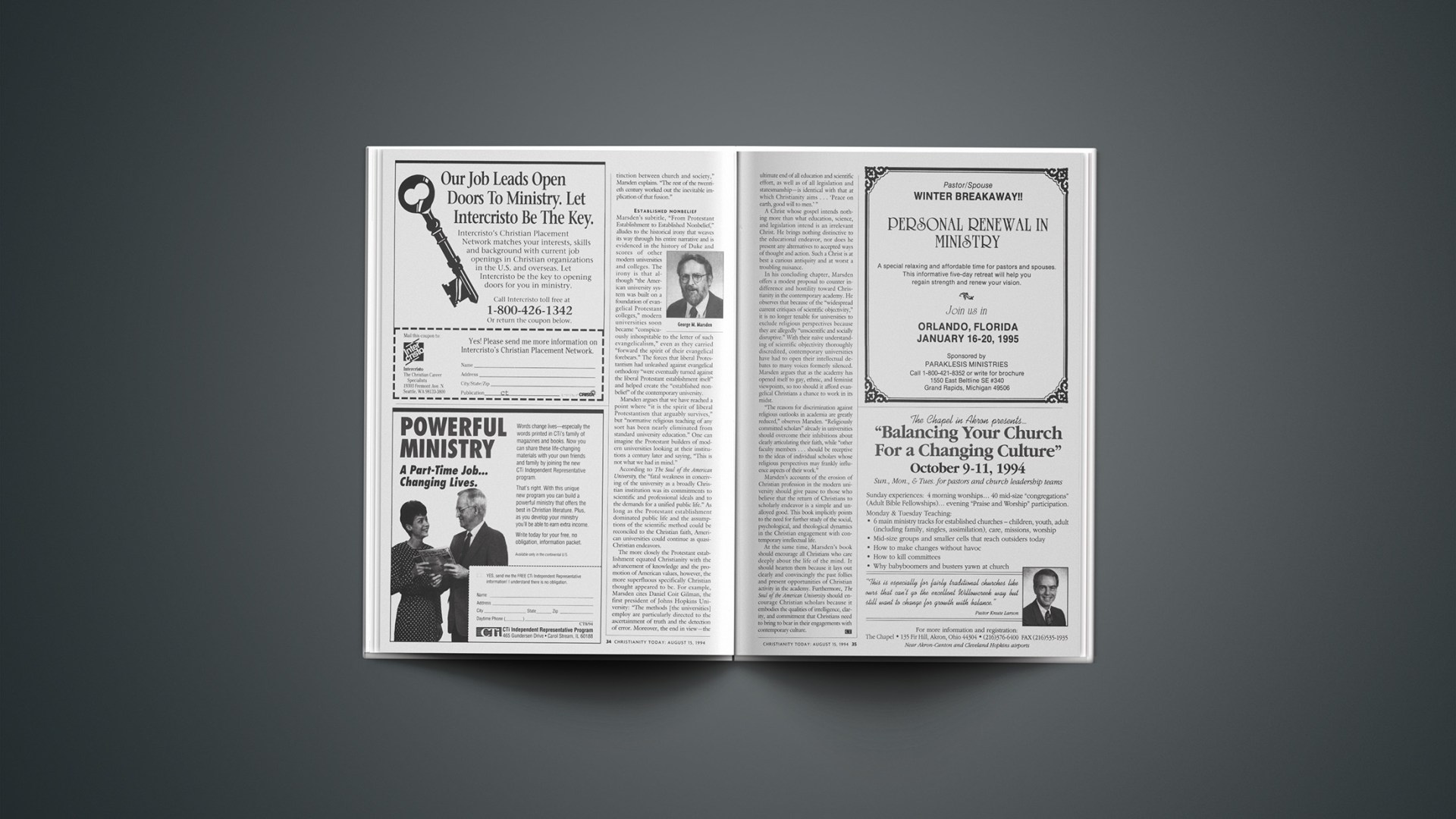“Before The Shooting Begins: Searching For Democracy In America’s Culture War, by James Davison Hunter” (The Free Press, 312 pp.; $22.95, hardcover). Reviewed by Harold O. J. Brown, professor of biblical and systematic theology, Trinity Evangelical Divinity School, Deerfield, Illinois.
Beginning in the 1950s, the European imperial powers began to give independence back to the African colonies they had carved out for themselves over a century or two. Where imperialism had once reigned, democracy was to rule. Today, the number of former African colonies that can be called democratic is approaching zero. (Surprisingly, it is South Africa, which was not a colony in the strict sense, that seems closest to democracy today.) Viewing countries such as Nigeria, Uganda, and Algeria—not to mention the most awful of all, Rwanda—Europeans, North Americans, and even many Africans are asking whether democracy is really the right thing for Africa. James Davison Hunter’s book leaves this reader wondering whether it is the right thing for us, either.
The unexamined axiom of Hunter’s second book on the culture wars is implicit in his subtitle: “Searching for Democracy in America’s Culture War.” With precise reporting and analysis, the University of Virginia sociologist shows us how difficult it has become for Americans to resolve the great moral issues of the day without destroying democracy. Perhaps unintentionally, he leaves us wondering whether democracy is viable.
If this suggestion seems strange, it is because of the skill and persuasiveness with which Hunter depicts the difficulty that an increasingly pluralistic democracy has in trying to set its moral compass for a direction that will not lead to social disintegration. Hunter believes in democracy and calls for its “substantive renewal.” In order to do so, he leads readers to the conclusion that certain things that many of us—on both sides of important issues—consider crucial and nonnegotiable are of secondary importance and can be mastered by compromise or by a modus vivendi in which the contending parties politely agree to disagree. He chooses the abortion controversy as the primary focus of his attention.
His title reflects his thesis, the proposition that culture wars inevitably foreshadow shooting wars. His example is the “culture war” over slavery that preceded the War between the States, the bloodiest conflict to which Americans have yet been exposed. With respect to abortion, he notes that many people thought the “war” to have ended in the total defeat of the anti-abortionists with the victory of a pro-abortion president to preside over an already pro-abortion Congress and a pro-abortion-minded Supreme Court. Hunter points out, however, that the proslavery forces had the same apparently unshakable position in the United States in the late 1850s, but that did not prevent the war and the ultimate abolition of slavery.
Hunter notes that Nazi imagery is often used in our cultural debates. He cites the late novelist Walker Percy as pointing to similarities between abortion and Nazi policies of extermination, while the Harvard law professor and ardent pro-abortionist Laurence Tribe notes that the Nazis made the abortion of Aryan children a capital offense. The most significant thing in the tendency to equate one’s opponents with the Nazis is the fact that, for the American moral conscience, Nazism is the incarnation of evil. If one side is truly to be equated with the Nazis, then it must be totally defeated and forced to accept unconditional surrender.
Not surprisingly, in view of his desire to forestall a shooting war, Hunter criticizes the rhetoric and exaggerations of both sides as distortions. In his view, which he supports with factual observations and numerous citations, neither side is likely to obtain a moral victory by persuading the other—despite frenzied rhetorical efforts. Why? Because the growing American commitment to multiculturalism and pluralism has made it virtually impossible for the nation to reach a consensus on moral matters.
Hunter offers an incisive analysis of multiculturalism, which he sees as effectively denying that there is such a thing as truth. He calls for a rediscovery of civil argument and persuasion, not a pseudo-tolerance that will make no moral judgments. He wants persuasion, not intimidation: “Those who claim the right to influence should accept the responsibility not to inflame.”
Integral to this approach is a call for “modesty in politics.” Traditionalist voices such as the “Religious Right” are regularly condemned for wanting to establish a millennial-style kingdom on earth. Hunter informs us that militant “liberal” movements, such as the ACLU, are just as millenarian as activist Christians, and he has no sympathy with either.
Hunter sees that political institutions cannot provide a transcending moral understanding with which to approach problems such as abortion, his test case, and argues that religious institutions are uniquely qualified to do so. He calls for a kind of “cultural ecumenism” to accomplish this, but it is hard to see how he would avoid a lowest-common-denominator consensus that would remain incapable of addressing moral issues.
He seems most concerned about the way in which the moral impasse of culture war prevents real argument and debate. This leads to people merely butting heads without understanding one another and turns democracy into a clash of interest groups. Thus, he reveals the impasse in which we find ourselves. The last thing he wants to see is a “crusade” to crush the infidels and establish by force some kind of a theocracy. Instead, he wants a revival of “substantive democracy.”
Unfortunately, Hunter virtually proves that his vision cannot be achieved in our pluralistic society. In many respects, this book is a necessary caution and warning against the kind of rhetorical extremism —not to mention extremist action—that only exacerbates tensions and does not resolve them. But Hunter does leave one with the impression that, in the long run, a common moral language is unattainable in the kind of democracy that we are becoming. This is a fine book, and a persuasive one, but not necessarily an encouraging one.
Copyright © 1994 Christianity Today. Click for reprint information.










